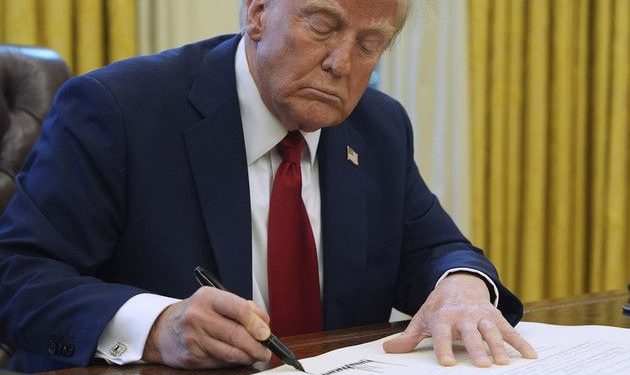TikTok has been rescued from a looming ban in the United States after months of uncertainty. The video sharing platform, owned by China’s ByteDance, faced the threat of being shut down under a 2024 law that required a forced sale of its U.S. operations. Now, following intense negotiations, a deal has been struck that allows TikTok to continue operating in the American market, but under strict conditions and with a new ownership structure. The most surprising part of the agreement is the $14 billion valuation assigned to TikTok’s U.S. business, a figure that has stunned investors, analysts, and users alike.
How TikTok Was Saved
The Trump administration’s executive order approved a restructuring deal that effectively transfers control of TikTok’s U.S. operations into the hands of American and allied investors. Under the new arrangement, a consortium led by Oracle, Silver Lake, and Abu Dhabi’s MGX will take a significant controlling stake. ByteDance, TikTok’s Chinese parent company, will retain less than 20 percent of the new entity and will be limited to one seat on a seven-member board.
The conditions of the deal are designed to ensure that ByteDance no longer has operational control over TikTok’s U.S. arm. Oracle has been assigned as the trusted technology and security partner, responsible for safeguarding user data, managing cloud infrastructure, and overseeing algorithm security. All U.S. user data must now be stored on servers physically located within the United States, under American oversight. The agreement gives the new structure a 120-day period to finalize the transaction before enforcement of the original ban resumes.
This arrangement has allowed TikTok to remain accessible to its more than 150 million American users, effectively saving the app from being pulled out of its most lucrative foreign market.
The $14 Billion Valuation
What shocked the market most was the $14 billion price tag assigned to TikTok’s U.S. business. Many analysts had previously valued TikTok’s American operations much higher, with some estimates ranging between $30 billion and $40 billion. Considering ByteDance itself is valued at around $330 billion globally, the figure placed on TikTok’s U.S. arm appears unusually modest.
For investors, the valuation presents both opportunity and risk. On one hand, acquiring a stake in one of the world’s fastest-growing social media platforms at a $14 billion valuation looks like a bargain. On the other hand, the relatively low price highlights the uncertainties that still surround the platform, from algorithm licensing and political oversight to regulatory risks that may persist for years.
Investor and Public Reactions
The deal has triggered mixed reactions worldwide. Investors who see TikTok’s potential for continued advertising growth and e-commerce expansion regard the valuation as a golden opportunity. Others caution that the heavy political involvement in the deal, along with restrictions on ByteDance, could create governance challenges that limit growth and innovation.
Among TikTok users, particularly creators who depend on the platform for income, the announcement brought relief. Many had feared that the app could disappear from the U.S. market altogether, taking with it audiences and revenue streams built over years. At the same time, employees within TikTok U.S. have expressed uncertainty over how new ownership and governance will affect internal policies, content moderation, and future product development.
Political commentators argue that while TikTok was technically saved, the deal reflects a broader trend of governments intervening directly in the ownership and management of global technology platforms. Some civil rights groups warn that shifting control to politically connected investors could influence content moderation decisions in ways that threaten neutrality and free expression.
Why the Valuation Matters
The $14 billion valuation is not just a number. It signals how geopolitical tension can affect the perceived worth of a global technology asset. In a purely commercial transaction, TikTok’s U.S. arm may have fetched double or even triple the price. But with the U.S. government shaping the terms of the deal, the valuation reflects political leverage more than market fundamentals.
The decision also highlights the risks facing Chinese-owned technology companies operating abroad. Even with strong user bases and high growth potential, political concerns over data security and influence can slash valuations dramatically. This dynamic will likely set a precedent for other cross-border tech businesses facing scrutiny in Western markets.
The Road Ahead for TikTok
TikTok has been given a second life in the United States, but the road ahead remains uncertain. The platform must navigate new layers of oversight, ensure compliance with strict data security requirements, and manage the complex process of licensing its algorithm while convincing users and advertisers of its independence from Beijing.
The coming months will be critical. Investors will watch closely to see if TikTok’s user growth continues, if advertising revenue expands, and if the platform maintains its cultural dominance. Regulators will examine whether the safeguards built into the deal are genuinely effective. Users and creators will wait to see whether the platform retains its unique character or shifts under new ownership dynamics.
Conclusion
TikTok was saved by a $14 billion deal that hands control of its U.S. operations to a group of American and allied investors. While the decision ensures that the platform remains active for its massive U.S. user base, the valuation has left markets astonished. To some, the price is a bargain for one of the most influential social platforms in the world. To others, it is a reflection of political risk and regulatory uncertainty. What is clear is that TikTok’s rescue has reshaped the global technology landscape, setting a precedent for how nations will handle foreign-owned platforms in the years to come.






















































